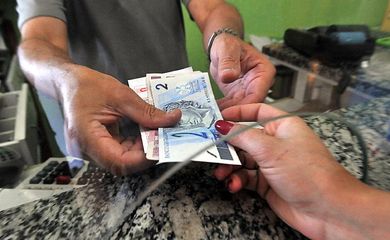Brazil's Central Bank president: Inflation control leads to social justice


In his inauguration ceremony, Goldafajn said the monetary authority's only mission is to maintain the currency's purchasing power and the financial system's stability.

Inflation control addresses uncertainties in the economy and promotes social justice, said new Central Bank President Ilan Goldfajn today (Jun. 13). When replacing the institution's former president, Alexandre Tombini, he said he would work to restore the so-called macroeconomic “tripod”, based on fiscal responsibility, inflation control, and floating exchange rate.
In his inauguration ceremony, Goldafajn said the monetary authority's only mission is to maintain the currency's purchasing power and the financial system's stability. He also rejected the idea that with higher inflation, stronger growth is achieved. "We will pursue a low and stable inflation. This is the Central Bank's first contribution to the Brazilian society, especially to disadvantaged groups who suffer most from the loss of the currency's purchasing power," he stated.
To his judgment, keeping inflation low helps address uncertainties in the economy and improve the business atmosphere, leading to a rise in both employment and income. "Social well-being brought about by the currency's purchasing power is beneficial to all Brazilians, and it benefits one without being detrimental to another," Goldfajn added.
He went on to state that he has been diligent in his efforts to replace the new economic framework, as the economic policy in effect over the last years was referred to—characterized by tax breaks, a reduction in interest, and measures to boost credit. “There's a consensus according to which the new economic framework should be replaced with the trusty old macroeconomic tripod: fiscal responsibility, inflation control, and a floating exchange rate regime. This is the system that made it possible for Brazil to rise not so long ago,” he argued.
In Goldfajn's view, the idea that higher inflation promotes economic development is a misconception. “There's a dilemma between low inflation and economic growth that's rather misleading. Our recent history shows that growing inflation does not bring about development. On the contrary, it leaves the economy in a shambles, pulls investment down, and causes an impact on employment and income,” he declared.
Central Bank Economic Policy Director from 2000 to 2003, Goldfajn took part in the formation of the inflation target regime, in operation to this day. According to him, the financial institution will be engaged in bringing the official inflation to the center of the target, currently set at 4.5%. However, he did not specify when it could happen.
Tasked with conducting the ceremony, Finance Minister Henrique Meirelles also associated low inflation to a better income distribution. “High and volatile inflation corrodes income and takes its toll on the poorer portions of the population. Low inflation is key to sustainable growth,” he maintained.
Translated by Amarílis Anchieta / Fabrício Ferreira
Fonte: Brazil's Central Bank president: Inflation control leads to social justice




